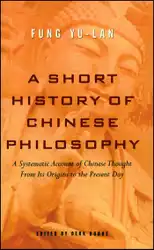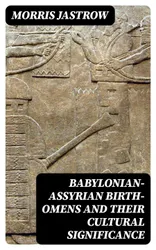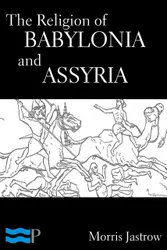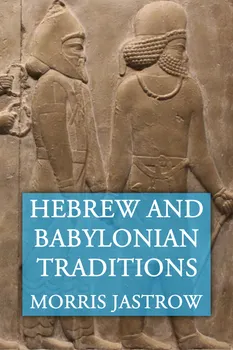It will be my main aim in this investigation to set forth some of the aspects presented by a comparison of two civilisations that have much in common, that were developed by peoples belonging in part to the same stock, and that have both exercised a wide influence, though in totally different directions. Despite many features in common, each of these civilisations went its own way, the one unfolding great political strength, supported by an elaborate military organisation, and producing, as outward expressions of this strength, monuments of gigantic proportions,—temples and palaces filled with works of art; it built great cities, created an extensive commerce, and made certain permanent contributions to the thought and achievements of mankind; the other, with little of outward display, politically insignificant, working out its destiny with apparently no thought of any extension of its influence beyond narrow boundaries, yet becoming one of the most potent factors in the religious history of mankind. The problem involved in a comparison between the Hebrew civilisation and the Euphratean culture, as we may briefly designate the Babylonian-Assyrian civilisation, since Assyria is merely an extension of the impulse that arose in the south and extended to the north, is to determine the point of separation between the two that led to such totally different issues. Why is it—we may properly ask—that with agreement in regard to many traditions, with religious ideas and practices that at one time bore a close resemblance to one another, with a general view of life, of divine government, of the fate of man after death, of practical ethics at the outset not sharply differentiated from one another, the courses taken by Hebrew and Babylonian traditions were so dissimilar. For it is to the different courses taken by this common stock of traditional ideas and practices that the contrast presented by Hebrews and Babylonians is to be traced—a contrast no less striking than the points of resemblance that once existed between the two civilisations. These resemblances have often been treated during the past decades, both in special investigations and in general summaries. They have been discussed from various points of view: on the one hand, by critics whose aim appeared to have been to show the dependence of Hebrew ideas upon those of Babylonia and Assyria; and on the other, by those whose view-point was directed towards securing confirmation of the data presented by biblical records. I have little sympathy with either mode of treatment. To extend the claims of Babylonian-Assyrian civilisation so as to make Hebrew achievements merely a pale reflection of the picture presented by Euphratean culture is to forfeit the possibility of any real understanding of the spirit of Hebrew history, is to miss the point of that history, and to abandon the key that will enable us to solve the problem involved in the profound influence exerted by the religious thought of the Hebrews. On the other hand, to press the apologetic attitude to the extent of assuming the unapproachable quality of the entire Old Testament without distinguishing between incidental and essential elements, and to carry on our historical research merely with a purpose of finding a confirmation of preconceived points of view, is to place the Old Testament in a false light and to pursue a method that is both vicious and disingenuous. We must frankly and unreservedly take as our starting-point in a comparative study of Babylonian and Hebrew traditions, the factor of evolution, by which I mean the assumption of a progress in religious thought, and apply that factor to Hebrew history precisely in the same manner and to the same degree as to the history of Babylonia and Assyria. The Hebrews were subject to outside influences in precisely the same manner and to the same degree as were all other ethnic groups.
Hebrew and Babylonian Traditions
Kom igång med den här boken idag för 0 kr
- Få full tillgång till alla böcker i appen under provperioden
- Ingen bindningstid, avsluta när du vill
Författare:
Språk:
Engelska
Format:

A History of Jerusalem : One City, Three Faiths

The Battle for God : Fundamentalism in Judaism, Christianity and Islam

Love and War in the Apennines

We Were Made for These Times : Ten Lessons For Moving Through Change, Loss, and Disruption

The Blessing and the Curse : The Jewish People and Their Books in the Twentieth Century

Rashi

A Short History of Chinese Philosophy

Queen of All Mayhem : The Blood-Soaked Life and Mysterious Death of Belle Starr, the Most Dangerous Woman in the West

Discover Physics

Numbers : A Very Short Introduction

Endangered American Dream

The Psychology of Hashish

An Old Babylonian Version of the Gilgamesh Epic : Enriched edition. Exploring the Ancient Mesopotamian Epic of Gilgamesh

The Religion of Babylonia and Assyria

The Religion of Babylonia and Assyria : Enriched edition.

Babylonian-Assyrian Birth-Omens and Their Cultural Significance

The Religion of Babylonia and Assyria

An Old Babylonian Version of the Gilgamesh Epic
